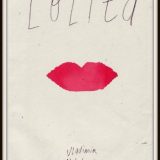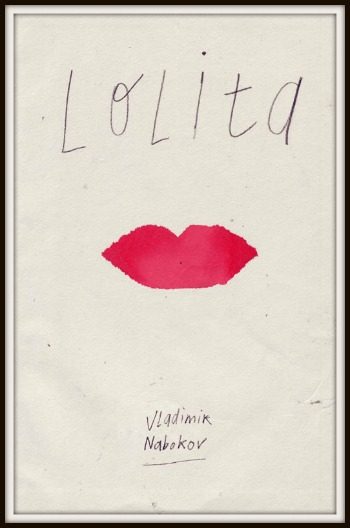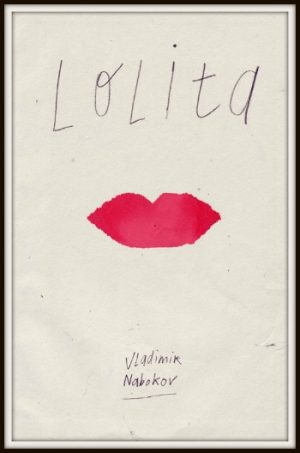Lolita – Vladimir Nabokov – 1955
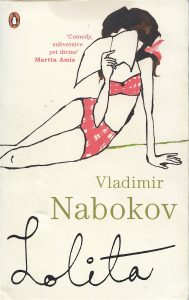
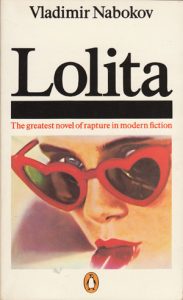
Reviewed by:Michael Sympson Date: 20 July 2002
Reservations about “Lolita”
To avoid any misunderstanding, this is neither a morality issue nor a bashing of Vladimir Nabokov. “Pnin” is his best English novel and one of the best in all American literature; period. From his Russian period I would choose “Glory” as the most balanced masterpiece. I know the master himself and his aficionados think and thought otherwise. They would root for “Dar” (“The Gift”) or “Invitation to a Beheading.” Nabokov did show his talent from early on; he developed an impeccable taste for quality and his debut novel “Mashenka” is the best thing Chekhov could ever have written.
There is an old wisecrack, that every author actually writes only one book – his first – and all the follow-ups are just variations. Lawrence Sterne is a case in point. Some authors even write one book only. Lawrence Sterne is a case in point – almost. This observation is not always fair to the writer’s creative scope. Sometimes he just doesn’t live long enough. Lawrence Sterne … . Nabokov died in his late seventies and despite of a refugee’s hassled life found the time to variegate on four or five basic stories: one of these always has the villain as the first person protagonist: as in “Despair,” or “Lolita.”
“Lolita” is generally hailed as Nabokov’s masterpiece. The colourful publishing history did help. The usual stupidity of censors and smutty journalism helped even more. But undoubtedly it is a novel by Nabokov, which means it is created by an artist for the sake of art. And certainly the Author’s hallmark, his linguistic felicity, the cat and mouse game of tricky plotting, the shifty repetition of mirror images and echoing motives is everywhere evident. But the attentive reader soon will notice that in the quality of writing the book falls apart in three very uneven stretches.
The first part is brilliant, the end a masterpiece of black slapstick burlesque, but in a private message to the author, Mary McCarthy criticized the second part as a piece of sloppy writing, and I am afraid she is right. The quality is not quite up to the first part. But that is not what really disturbed me: Nabokov is a true artist, and that means at some point, truth and beauty, like two parallels, meet in infinity. Nabokov is not going to spare us the truly nasty character traits of Humbert Humbert. He is not to hide from the reader’s view the hysterical fits and daily tears of the abused child.
It is perhaps a shortcoming of the method: seen through the educated mind of her cultured abuser, poor Lolita is barely more than a savage brat in a velvety hide and endowed with the right kind of dimpled bottom. What this view cannot provide is the normal child, which Lolita had been, before Humbert Humbert stepped into and on her life. Things come to a point where the reader would like to ask the author: hey – what’s all this? Do I really need to read any more of Humbert’s antics? Do I want to? The protagonist’s snooty sarcasm had its amusing moments, but this here is just sickening.
Lolita grew up in a world where she was made to understand that she could trust in the values of a prolonged and sheltered childhood. In her world only the family doctor has any right to lay a finger on her Mons pubis. Along comes Humbert who uses every trick in the book to get more than just a finger to this place. The way things accumulate, Nabokov’s sumptuous prose is beginning to leave a bad taste in the mouth. It’s no longer funny. And we are in for a long stretch, America is a wide country with more motels than Liechtenstein has people.
An artist in our time, most likely, is an outsider’s outsider – however he is still standing for something of value, even if this day and age is not in the habit of appreciating it. But what is Humbert standing for if not for his own depravity? I just don’t see it. It is true, pederasty among consenting males had been an accepted practice for millennia; our whole concept of professional apprenticeship is rooted in the prehistory of sexual partnerships between adults and boys. But Lolita is the child of a very different era. And Humbert knows it. But he can see her only as a capricious pet.
Humbert suffers a true lovers agony, so it seems. “Lolita,” in a twisted way, must be a love story. Humbert himself is suggesting it, when he stands before her door packing a gun. He will not kill her, because after all he loves her, even in her squalid pregnancy as the wife of a crippled veteran. Yet that should actually send a signal to the reader. Driven to extremes we very well can kill who we love. So even if Lolita is an object of desire, there is missing a common ground between the protagonists. They neither share a common notion of “love” nor even a common affection or disaffection.
Nabokov is very effective in suggesting that Lolita feels absolute nothing for her hairy lover, only the desperate dejection of a trapped animal trying to escape. Sex for her is basically a little sport before she goes into the shower. There is still no emotional dimension to it and Humbert’s intervention can only create a hopeless cynicism. It even comes to the point where Lolita quite deliberately prostitutes herself for material favours and the means to engineer her escape. In the end it must have left a telling signature on her face and an infinitely despondent emptiness in her mind.
Nabokov would not be known as a great artist if his novel and the characters in it would lack in coherence. But how “realistic” is the psychological model that underpins their various traits and behaviours? Not that it is an important question by Nabokov’s own standards. But it may actually add a redeeming touch to acknowledge, that this story of child-abuse is just a fairy tale – a squalid Cinderella story with no happy ending. Happy endings are cheating anyway.


